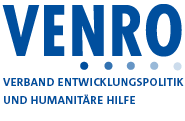Die afrikanisch-europäischen Beziehungen sind vielschichtig und nicht frei von Spannungen. Dennoch sieht Jane Nalunga, die Direktorin des Southern and Eastern Africa Trade Information and Negotiations Institute (SEATINI) in Uganda, viele Möglichkeiten für eine konstruktive und solidarische Zusammenarbeit auf Grundlage der Nachhaltigkeitsziele der Agenda 2030.
Almost a year ago, the newly appointed President of the EU Commission met with the Chairperson of the AU Commission during her first official trip abroad. She repeatedly announced that the EU Commission wants to take the AU-EU partnership to a “new level”. Do you see any improvement in that sense?
The commitment is welcome though we are yet to see it transformed into practical results that will structurally transform Africa’s economies. Although there has been bilateral assistance from the EU and the recognition that there are potential mutual benefits arising from the partnership, the historically unequal relationship has persisted. Such instances as the EU’s undue pressure on African countries to conclude the contentious Economic Partnership Agreements depicted a move away from the development intent to the pursuit of the EU’s objectives of increasing trade. But the AU has also failed to overcome the dependency syndrome and to come up with a coherent cooperation strategy for the EU.
The relations between African and European civil society are also not free of difficulties and misunderstandings. Which imbalances do you perceive? And what do we need to do to take our partnership to the “next level”?
While there is a lot in common between African and European civil society especially in terms of their fight for justice and a fair world, there is a power imbalance based on access to resources like finances, information and spaces for engagement. This has sometimes led to a skewed relationship between the two sides. European civil society should appreciate the challenges facing African civil society, especially in terms of access to resources and the complicated operating environment. The two parties should work under the principles of solidarity, mutual respect and complementarity while respecting diverging views, cultural sensitivities and priorities.
Which are the issues of common interest that both African and European citizens would benefit from and that the AU and EU should therefore focus on?
Both African and European citizens should push the AU and EU to focus on addressing the root causes of poverty and inequality within and between nations. This will entail the AU and EU working in concert to ensure that policies at their respective national, regional and multilateral levels promote sustainable people centred development as provided for in the Sustainable Development Goals (SDGs).
We continue to witness glaring inequality, for example in relation to climate justice, the distribution of wealth or the access to political and social rights. How can African and European civil society better coordinate their efforts to jointly tackle these challenges?
In order for the African and European civil society to jointly tackle these challenges, they should first of all develop a common understanding of the root causes and solutions to these challenges. This will facilitate successful joint engagement with the duty bearers in both Africa and the EU. For example, the challenges related to climate justice and the distribution of wealth are as a result of the promotion of the discredited neoliberal policies that facilitate unbridled capitalism. Yet some civil society members may see capitalism as as the solution. Joint advocacy cannot be sustained under such circumstances.
A new generation of young activists has entered the political arena with global concerns like climate change on their minds and digital communication tools in their hands. In how far does that change our mutual perception? Can we hope for more exchange and solidarity between people in Africa and Europe?
The young activists, facilitated by digital platforms, provide a ray of hope to promote solidarity between Africa and Europe. The dynamism and enthusiasm from the young people to advocate for such diverse issues as climate change, debt, fair taxation among others is refreshing. It is important that these efforts are channelled into engagement with power centres to ensure policy changes that will structurally transform African economies and eradicate inequality and poverty.
Jane S. Nalunga ist Direktorin des Southern and Eastern Africa Trade Information and Negotiations Institute (SEATINI) in Uganda. Sie war Podiumsteilnehmerin bei der Konferenz “Civil Society Driving Change: Towards a New Quality of the Africa-Europe Partnership“ am 16. Oktober 2020.
Das Projekt „Towards an open, fair and sustainable Europe in the world – EU Presidency Project 2020-2022“ wird gefördert von der Europäischen Union und durchgeführt vom Verband Entwicklungspolitik und Humanitäre Hilfe deutscher Nichtregierungsorganisationen (VENRO), der portugiesischen Plattform entwicklungspolitischer Nichtregierungsorganisationen (Plataforma Portuguesa das ONGD), der slowenischen Plattform der Nichtregierungsorganisationen für Entwicklung, Globales Lernen und Humanitäre Hilfe (SLOGA) und dem europäischen Dachverband entwicklungspolitischer Nichtregierungsorganisationen (CONCORD).
Disclaimer: Inhalte mit Bezug zum Projekt „Towards an open, fair and sustainable Europe in the world – EU Presidency Project 2020-2022“ wurden mit finanzieller Unterstützung der Europäischen Union erstellt. Diese Inhalte liegen in der alleinigen Verantwortung von VENRO und geben unter keinen Umständen die Meinung der Europäischen Union wieder.
| Interview |
Die Inhalte auf dem VENRO-Blog geben Meinungen und Einschätzungen unserer Autor_innen wieder. Sie können von abgestimmten VENRO-Positionen abweichen.
 Mitgliederbereich
Mitgliederbereich
